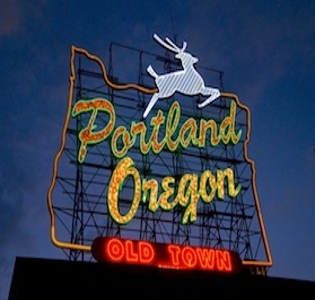
While the Oregon House passed their version of a bill to shut down the Portland with little discussion, the story on the other side of their bicameral legislature is a bit different. Last week, the Oregon Senate debated legislation regarding the Portland poker room industry, drawing some different conclusions than their brethren in the House.
The Senate Committee on General Government and Accountability convened last week and HB 2190, the House bill that would effectively shut down the Portland poker rooms, was on the agenda for discussion. Rather than discussing an outright ban on those rooms, the Senate committee entertained other ideas rather than closure. The chair of the committee, State Senator Chuck Riley, said that “there is another way” to bring the Portland poker rooms in line rather than their shutdown proposed in the bill.
An intriguing “other way” proposed by the committee would see a change that the poker rooms themselves might not find appealing but would keep them open. Many of the poker rooms in Portland take an “entry fee” from players – a one-time payment at the door for the players to be able to enter the poker room and take part in the games and tournaments. It is roughly like a “cover charge” that people pay before they enter a comedy show or small-scale concert that the poker rooms have used to generate revenue. By dropping this fee, the Senate committee said they would tentatively go along with leaving the Portland poker rooms alone.
This would be a bit difficult for the poker rooms, however. That “entry fee” is a huge portion of the revenue of the business as they do not charge a rake on the tables (a violation of Oregon’s gambling laws). Without either a rake or the entry fee, the poker rooms would solely rely on the sale of drinks and food for their revenues, a significant cut to the overall “bottom line” of those businesses.
Also of interest to the Senate committee is the usage of dealers in the poker rooms. Under gaming laws in the state, dealers cannot be paid by the poker rooms to deal the games. Instead, those dealers are expected to be tipped by the players. The Oregon government would like to see the games self-dealt, but that isn’t something supported by the poker rooms nor the players themselves as it could lead to problems of cheating.
The Portland poker room industry is one that has thrived over the past decade. With the start of the first poker room back in 2007 (“social gaming” was actually opened up in the 70s and 80s, but the first poker room in Portland didn’t open its doors until 2007). At its peak, there were nearly two dozen poker rooms in the city, but outside influences began to hack away at that number.
Facing the onslaught of the rise of Indian gaming in the state (there are eight Indian casinos in the state), authorities began to crack down on the Portland poker scene. With as much as $10-$15 million a year going into the pockets of Portland poker room operators, the gaming interests in Oregon – and by extension their neighbors in Washington state, also the home of a thriving Indian casino industry – looked to the government for help in shutting the Portland scene down. Now, there are 13 poker rooms in the city limits of Portland.
It doesn’t seem that HB 2190 is gaining any traction in the Oregon Senate, but (as with all things political) situations can change quickly. The committee will meet again on May 24 and another talk is scheduled to take place on the bill’s future.























